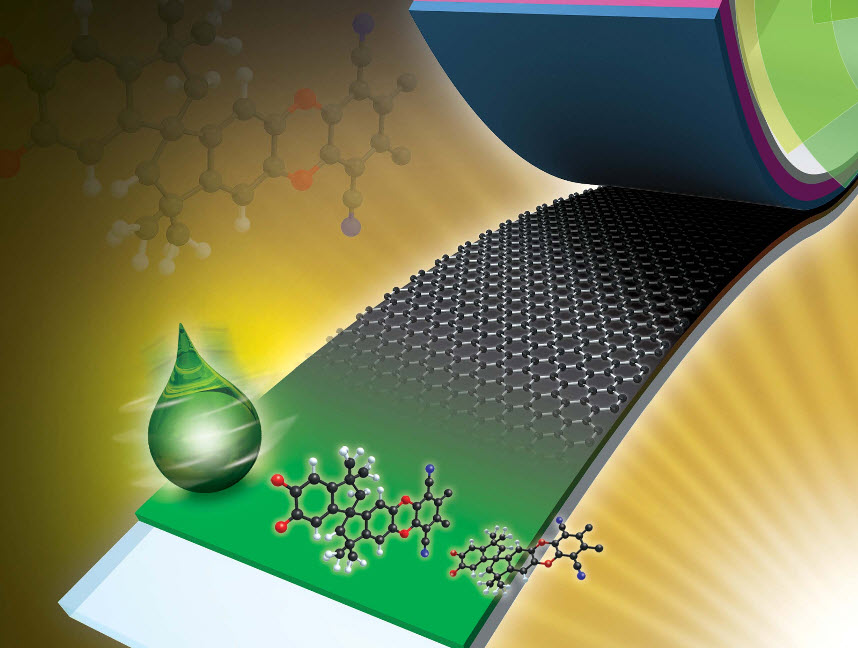A graphene replacement made from plastic
July 8, 2014

Spin-coating a polymer solution (green) to create a carbon nanosheet with characteristics similar to graphene, without the defects (black) (credit: Nanoscale)
A team of Korean researchers has synthesized hexagonal carbon nanosheets similar to graphene, using a polymer. The new material is free of the defects and complexity involved in producing graphene, and can substitute for graphene as transparent electrodes for organic solar cells and in semiconductor chips, the researchers say.

The new carbon nanosheets are created in a simple two-step process (left): spin-coating a quartz substrate with a polymer solution (green) and heating. The resulting carbon nanosheet (center) can be used directly in an organic solar cell (right) as a high-conductivity contact, replacing expensive, rare indium tin oxide (ITO) and graphene. (Credit: KIST)
The research team is led by Han-Ik Joh at Korea Institute of Science and Technology (KIST), Seok-In Na at Chonbuk National University, and Byoung Gak Kim at Korea Research Institute of Chemical Technology. The research was funded by the KIST Proprietary Research Project and National Research Foundation of Korea.
Abstract of Nanoscale paper
Through a catalyst- and transfer-free process, we fabricated indium tin oxide (ITO)-free organic solar cells (OSCs) using a carbon nanosheet (CNS) with properties similar to graphene. The morphological and electrical properties of the CNS derived from a polymer of intrinsic microporosity-1 (PIM-1), which is mainly composed of several aromatic hydrocarbons and cycloalkanes, can be easily controlled by adjusting the polymer concentration. The CNSs, which are prepared by simple spin-coating and heat-treatment on a quartz substrate, are directly used as the electrodes of ITO-free OSCs, showing a high efficiency of approximately 1.922% under 100 mW cm−2 illumination and air mass 1.5 G conditions. This catalyst- and transfer-free approach is highly desirable for electrodes in organic electronics.
